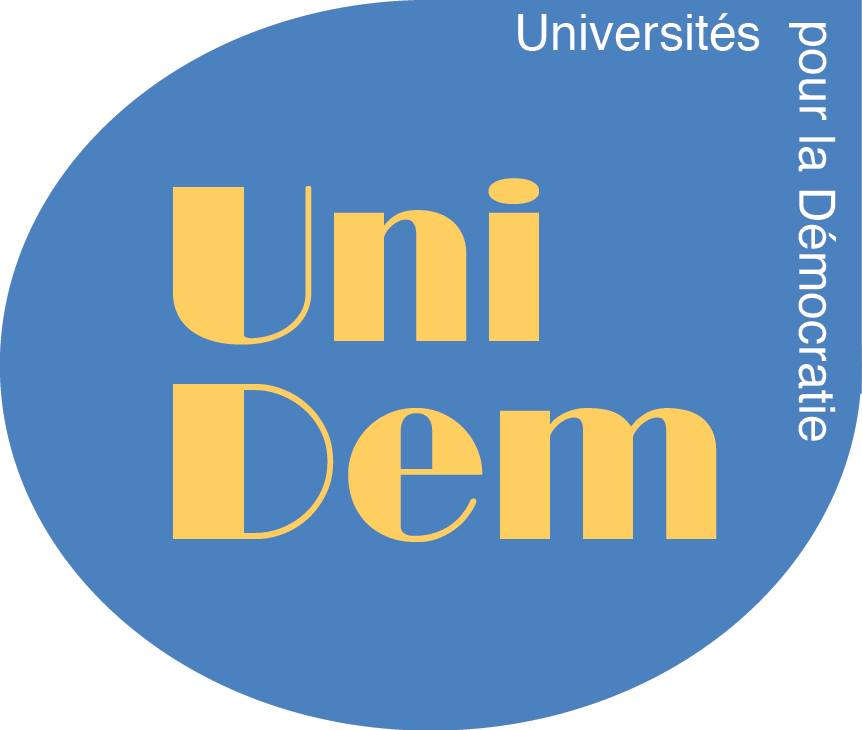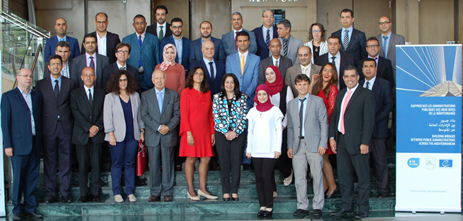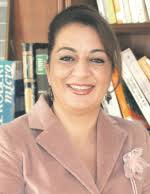
University for Democracy for the Southern Mediterranean (UniDem Med)
General overview
|
Objectives of the UniDem Med project
 to contribute to an ever more efficient administration and good governance in the respect of human rights, in the enforcement of law and institution building; to contribute to an ever more efficient administration and good governance in the respect of human rights, in the enforcement of law and institution building;
 to bring together senior civil servants from the southern Mediterranean to exchange experiences and strengthen ties between public administrations in the region; to bring together senior civil servants from the southern Mediterranean to exchange experiences and strengthen ties between public administrations in the region;
 to collect, share and disseminate the experiences and the best democratic practices of the two sides of the Mediterranean in a perspective of mutual enrichment on issues of common interest. to collect, share and disseminate the experiences and the best democratic practices of the two sides of the Mediterranean in a perspective of mutual enrichment on issues of common interest.
|
The quality and effectiveness of public administration and public services are essential for democratic stability. This presupposes that citizens and users of public services have confidence in the structures of the state, and in particular in the public administration, which should operate according to clearly stated rules and procedures while respecting the principle of the rule of law. On the other hand, public officials should enjoy appropriate legal status and working conditions, be aware not only of their rights but also of their duties and responsibilities towards users.
UniDem Med (University for Democracy for the Southern Mediterranean) is a regional project that aims to support the reform of public administration in the Southern Mediterranean, based on the respect of the fundamental principles of the rule of law and democracy. The project brings together experts and senior officials from Europe and the Southern Mediterranean (Algeria, Egypt, Jordan, Lebanon, Morocco, Palestine* and Tunisia) to share experiences and build closer ties between authorities in the region and beyond.
Since the launch of the project in 2015, almost 1250 senior civil officials from the Southern Mediterranean have participated in UniDem Med seminars and are now forming a network of practitioners in the field of public administration reform.

Initiated by the Venice Commission in close cooperation with the Ministry of Civil Service Reform and Modernisation of the Administration of the Kingdom of Morocco, UniDem Med contributes to the development of an ever more efficient administration and the strengthening of good governance in the Southern Mediterranean. A Memorandum of Understanding was signed between the Venice Commission and Morocco in October 2017 to continue and sustain the project.
The UniDem Med project has been supported by successive phases of the South Programme which aims at supporting democratic reforms in the Southern Mediterranean region (Algeria, Egypt, Israel, Jordan, Lebanon, Libya, Morocco, Palestine* and Tunisia). The current phase of the programme "Regional support for strengthening human rights, the rule of law and democracy in the Southern Mediterranean" (South Programme IV) is co-financed by the European Union and the Council of Europe and implemented by the latter. Some member states of the Council of Europe have also contributed to the organisation of the seminars through voluntary contributions.
Useful links:
Ms Nadia Bernoussi, Member of the Venice Commission in respect of Morocco, and General Rapporteur of the 14ème UniDem Med seminar
"I don't know how to define quality, but I know when it is lacking."1
For a decade, the regional seminar for senior officials of the UniDem Med administration has become an unmissable event, recognised by all those interested in public governance management, the quality of public service and an efficient administration close to the citizens. The theme chosen this year was "Good governance and quality of public administration" and was the subject of national presentations by distinguished speakers, combining expertise from the field and the academic world. It is important to remember that the issues dealt with relating to ethics, deontology, access to information and quality place the citizen at the centre of the State's concerns and the policies for modernising the administration.
Among the relevant recommendations, mention should be made of the search for management based on trust and collective competence, professional equality between the sexes, the generalisation of codes of conduct and ethics in the public service, encouragement to ratify the Tromso Convention and encouragement to create general or sectoral quality charters. These conclusions were the fruit of the quality of the exchanges and the interweaving of experiences and good practices from both sides of the Mediterranean with the ultimate objective of highlighting the points of encounter in order to lay the foundations together for quality management, renewed and adapted to the requirements of the 21st century, with its challenges, its stakes and its numerous opportunities.
[1] Peter Cusins (1994) in Paula Marc - Bitumar Inc "Quality - the different concepts of quality
A participatory working method
The UniDem Med project is steered by the coordinators appointed by each partner. Every year, a coordination meeting decides on the annual programme and the themes of the UniDem Med seminars. During these seminars, experts from both sides of the Mediterranean are invited to present the developments and the best practices at national and international level on the proposed theme. A particular focus is given to the expertise and experience of the partner hosting and co-organising the seminar. In parallel, each coordinator invites senior colleagues concerned with the topic and identifies experts who will present their specific situation in relation to the seminar theme. A significant part of the seminar is then devoted to discussion and exchange of pratcical experiences among peers. In 2022, the coordinators have decided to dedicate a part of each seminar to the follow-up and progress of the reforms undertaken in their respective countries on the themes of the previous seminars. The annual coordination meeting also provides an opportunity to review the impact of the project and to discuss issues related to the visibility and sustainability of the project.
The UniDem Med coordinators
|
Algeria
Mr Moncef BEDARIA
Deputy Director for Cooperation and External Relations,
Directorate General of Civil Service and
Administrative Reform
|
Egypt
Ms Ghada LABIB
Deputy Minister for Institutional Development,
Ministry of Communications and Information Technology
https://www.mcit.gov.eg/
|
|
Jordan
Ms Siham AL KAWALDEH
Director General,
Institute of Public Administration
https://ipa.gov.jo/en
|
Lebanon
Ms Nisrine MACHMOUCHI
President, Lebanese Civil Service Council
|
|
Morocco
Mr Samir BOUGGAR
Director of Studies, Cooperation and Communication, PI
Ministry of Digital Transition and
Administration Reform
https://www.mmsp.gov.ma/fr
|
Palestine*
Ms Nisreen ZGHAIAR
Head of Public and International Relations and Media Unit,
General Personnel Council
|
|
Tunisia
Mr Sami BEN ROMDHANE
Director General of Administration and Public Service,
Presidency of the Government
http://www.pm.gov.tn/
|
|
The Venice Commission
- Ms Caroline MARTIN, Head of Unit for Cooperation with Southern Mediterranean Countries
- Ms Frédérique PRIVAT DE FORTUNIE, Project Manager (until 30 September 2023)
- Ms Haifa ADDAD, Project Assistant
Other useful links:
____________________________________________
* This designation shall not be construed as recognition of a State of Palestine and is without prejudice to the individual positions of Council of Europe and European Union member States on this issue.